Ari North is a queer cartoonist who believes an entertaining story should also be full of diversity and inclusion. As a writer, artist and musician, she wrote, drew and composed the story and music for Always Human, a complete romance/sci-fi webcomic about two queer girls navigating maturity and finding happiness. She’s currently working on the webcomic Seven Days in Silverglen, a modern fantasy romcom about the masks we wear to fit in when we feel monstrous. She lives in Australia with her husband.
I had the opportunity to interview Ari, which you can read below.
First of all, welcome to Geeks OUT! Could you tell us a little about yourself?
Hi, thanks for having me! I’m Ari, I live in Australia, I make webcomics, and I’m really bad at answering this type of question! Some people are really good at talking about themselves and I’m not one of those people.
I’m bi and use she/her pronouns.
What can you tell us about your upcoming book, Love and Gravity, a sequel to Always Human?
Love and Gravity is the print edition of the second half of the Always Human webcomic.
It’s a YA sapphic romance set in a future where sci-fi body-modification is all but ubiquitous. The first book followed the two main characters as they met, formed a relationship, and worked through their first fight. Book two continues their story, as – with each other’s support – they figure out this adulting business, and what they really want out of life.
What was your inspiration for your comic, Always Human? What inspired this queer sci-fi world?
I’d been wanting to draw a practice comic – something maybe 20-30 pages – as a way to develop my skills, and was thinking about a short romance between a girl who was an ordinary human, and a girl who had a secret about her identity (maybe she was a vampire, or a witch, or a spy, I didn’t know exactly, this was a very vague idea.)
At this time I saw that webtoons.com was running a sci-fi comic competition, and decided to enter (I wanted the comfort of an external deadline).
Obviously this meant the girl with the secret couldn’t be a witch – maybe she could be a robot, or a cyborg? But that didn’t seem like any fun to draw, so I stopped thinking about mechanical parts and started thinking about bioaugmentation – genetically engineered super strength? cat eyes to see in the dark? a prehensile tail, for convenience? neon hair, because it’s cool? – and then I started thinking about sci-fi fashion, and how much fun it would be to draw this sort of stuff.
And that was where Always Human started to take form: I no longer wanted to tell a story about a girl with a secret, who was hiding her bioaugmentation from her normal human crush. I wanted a story set in a world where bioaugmentation is everywhere, and a romance where a girl who uses this technology falls for a girl who doesn’t.
The sci-fi setting is equal parts inspired by what I wanted to draw, and what I’d want to do to myself, if this sort of technology existed now.
Spoiler: One of the elements that struck me about Always Human was the inclusion of disability into its worldbuilding, i.e. Austin’s autoimmune condition, Egan’s syndrome, that prevented her from using mods (modifications that other individuals in this world can use.) What inspired this element within the story?
So following on directly from the above question – at this point in the story development process I had a vague story idea about a girl who uses bioaugmentation technology (mods) falling for a girl who doesn’t use mods.
I needed to figure out who this girl was. Did she not want to use mods? Or was it that she couldn’t use mods?
Since I’m the type of person who’d use mods in a heartbeat, I didn’t think I’d be able to do a good job of writing a character who chose not to use them. I needed this character to be a person who wasn’t able to use mods. An autoimmune condition seemed the most sensible explanation for why mods might not be accessible for her.
I continued to think about the character who became Austen. What jobs might be available to someone who can’t use mods? How would she do in school if she can’t use the focus and memory mods everyone else uses? It occurred to me that I’d created a setting where Austen – a person who wouldn’t be seen as disabled in the world we live in – was in practice disabled by a futuristic society built around technology that wasn’t accessible to everyone.
At the time I was developing these ideas I was a newly graduated primary school teacher, doing casual work in (mostly) underfunded schools. During my degree there had been a lot of focus on making sure that lessons are accessible to everyone. I was thinking in these terms when developing Austen. Schools often fail when it comes to accessibility – often not for lack of trying on the part of teachers, the support and budget simply isn’t there – and kids who would thrive in a different environment can struggle to succeed in the socially constructed environment that is a school.
I mirrored this in the setting of Always Human, by having an apparently utopian future built around technology that isn’t accessible to everyone – because no one’s willing to put the time, money and effort into supporting the very few people who can’t access mods. Austen knows she would thrive in a different environment, and her frustration throughout the story was very much inspired by the frustration of some of the children I met while teaching.
What inspired you to get into comics, particularly webcomics (which Always Human was originally)? Were there any writers or stories that sparked your own love and interest in storytelling?
A friend got me into anime and manga when I was 12. I fell in love, and immediately trawled the internet for anime art tutorials. At some point I followed a link to a webcomic, then followed more links to more webcomics, and I was hooked. I was amazed by the idea that anyone could do this, could create any story they wanted and just post it online. How wonderful!
I’ve been wanting to make my own since back then, and went through multiple never-to-be-seen attempts at webcomics before starting Always Human.
The manga that most inspires my storytelling is Honey & Clover (the way Umino Chika weaves together contrasting narration, dialogue and images is incredible.)
*I probably didn’t use google, it was a long time ago!

As a queer comic creator, what does queer representation mean to you?
Someone told me once that representation in fiction can either be a mirror (reflecting parts of the reader’s own experiences back at them) or a window (giving the reader a glimpse of experiences unfamiliar to them.) I love it when queer representation does both – I love seeing myself in stories, and I love seeing other people too.
As an artist, who or what would you say are some of your greatest creative influences and/or sources of inspiration?
I mentioned above falling in love with manga. I love the cinematic paneling, and the way the eye flows so easily from text to art to text to art, it’s so immersive. I’m especially inspired by shoujo manga – the big expressive eyes, the delicate hair, the backgrounds that are more about atmosphere than setting.
I’ve also always loved Alphonse Mucha and Art Nouveau. Delicate, flowing lines!
For those curious about the process behind a comic/graphic novel, how would you describe the process? What goes into creating a script and translating that into panels?
Since I create webcomics in the mobile-scrolling webtoon format, I thought about scripting in terms of episodes (for Always Human this meant around 20-30 panels per episode, which is very short for a graphic novel chapter.)
I’ll start scripting with a short sentence describing what happens in the episode, and what parts of the story I want the episode to progress eg. “Character A has been waiting for a letter, it finally arrives. We see A’s normal routine, and how impatient they are. Hints that a storm is coming. End with the tension of the letter containing unexpected news.”
I’ll then write a panel by panel script which looks something like:
- Long panel showing menacing clouds over a city skyline. A snippet of a phone conversation flows down the panel: Yes, I just want to know when –
- Smaller panel, zoom in to A’s apartment. Phone conversation continues: No don’t put me on hold again I- CLICK
- A is standing in the kitchen, medium shot, surrounded by meal prep debris. They’re holding a mobile between shoulder and face, and look very annoyed.
- etc.
I’ll then roughly sketch all the panels for the episode on a very long canvas, with the layout they’ll have when read as a webcomic. I place dialogue and speech bubbles at the sketch stage, and if I’m using 3D models to assist with backgrounds I’ll add them as well. Then I ink all the panels, then colour all the backgrounds, then colour all the foregrounds, and then add any final details.
I think the process of moving from script to panel layout is a lot more complicated when you’re drawing a comic for printing – since the panels have to slot together on a page while guiding the reader’s eye through the story – but I’ve always drawn comics for webtoon format, where there’s a lot less choice in how the panels are placed, they just have to flow down. I imagine people who write for page/book comics might script in a different way (probably with page divisions?)
What are some of your favorite parts of the creative process? What do you find to be some of the most frustrating/difficult?
I love colours! Figuring out the colour scheme for a scene is one of my favourite things to do, it’s so satisfying seeing it come together.
I don’t particularly enjoy inking. It’s fiddly and doesn’t really involve making creative choices (since these choices mostly get made while sketching.)
Aside from your work, what are some things you would want others to know about you?
I don’t like pineapple, unless it’s on pizza.
What’s a question you haven’t been asked yet, but wish you were asked (as well as the answer to that question)?
A lot of artists (comics and otherwise) listen to audiobooks/podcasts/youtubers/streamers while drawing, and I’m always curious to know what they’re listening to. Since this is a question I’d like to ask of other people, I guess it’s a good question to ask of myself.
Some of my favourite listens are: The Locked Tomb series, The Parasol Protectorate, Discworld, Skulduggery Pleasant, The Murderbot Diaries, A Master of Djinn, Lord of the Rings & The Hobbit, The Magnus Archives, Welcome to Nightvale, Jessie Gender’s youtube channel, WithCindy’s youtube channel, Princess Weekes’ youtube channel.
Are there any other projects you are currently working on and at liberty to talk about?
I’m currently working on another webcomic, Seven Days in Silverglen, a modern fantasy romcom starring a gorgon who really shouldn’t have agreed to fake-date her crush, what a terrible idea.
The webcomic is currently on hiatus, courtesy of long covid, but I hope to be back to regular updates soon.
What advice might you have to give to aspiring graphic novelists (both to those who write, those who draw, or those who both draw and write )?
Read lots of comics! Storytelling with words and (still) images is very different to storytelling with prose, or animation, or any other medium. Start with a webcomic, webcomics are great 🙂
Finally, what LGBTQ+ books/ comics would you recommend to the readers of Geeks OUT?
An incomplete list of queer webcomics that I love (and which you can read for free!)
Ava’s Demon, Miracle Simulator, Sleepless Domain, Muted, Covenant, Blades of Furry, Vampire Magicka, Straylight Tiger, Namesake, Mage & Demon Queen, Apollonia, Susuhara is a Demon!, Diamond Dive, Love Not Found, High Class Homos, My Dragon Girlfriend, Heir’s Game, The Witch, Heartstopper, REEDS, Kiss it Goodbye, Facing the Sun, The Right Knight, Castle Swimmer, Console Her, Novae, Electric Bones, How to be a Werewolf,
An incomplete list of queer, non-webcomics that I love.
Manga:
Donuts Under a Crescent Moon, Bloom into You, Given
Graphic novels:
On a Sunbeam, Mooncakes, Bloom, The Tea Dragon Society, Basil and Oregano (I got to read this early, it’s so good!!)
Prose novels:
The Long Way to a Small Angry Planet, Legends & Lattes, The Lady’s Guide to Celestial Mechanics, Gideon the Ninth.

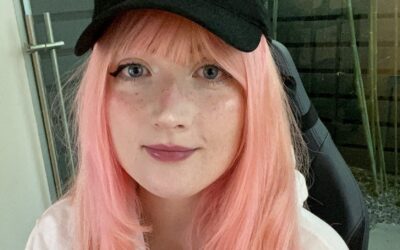
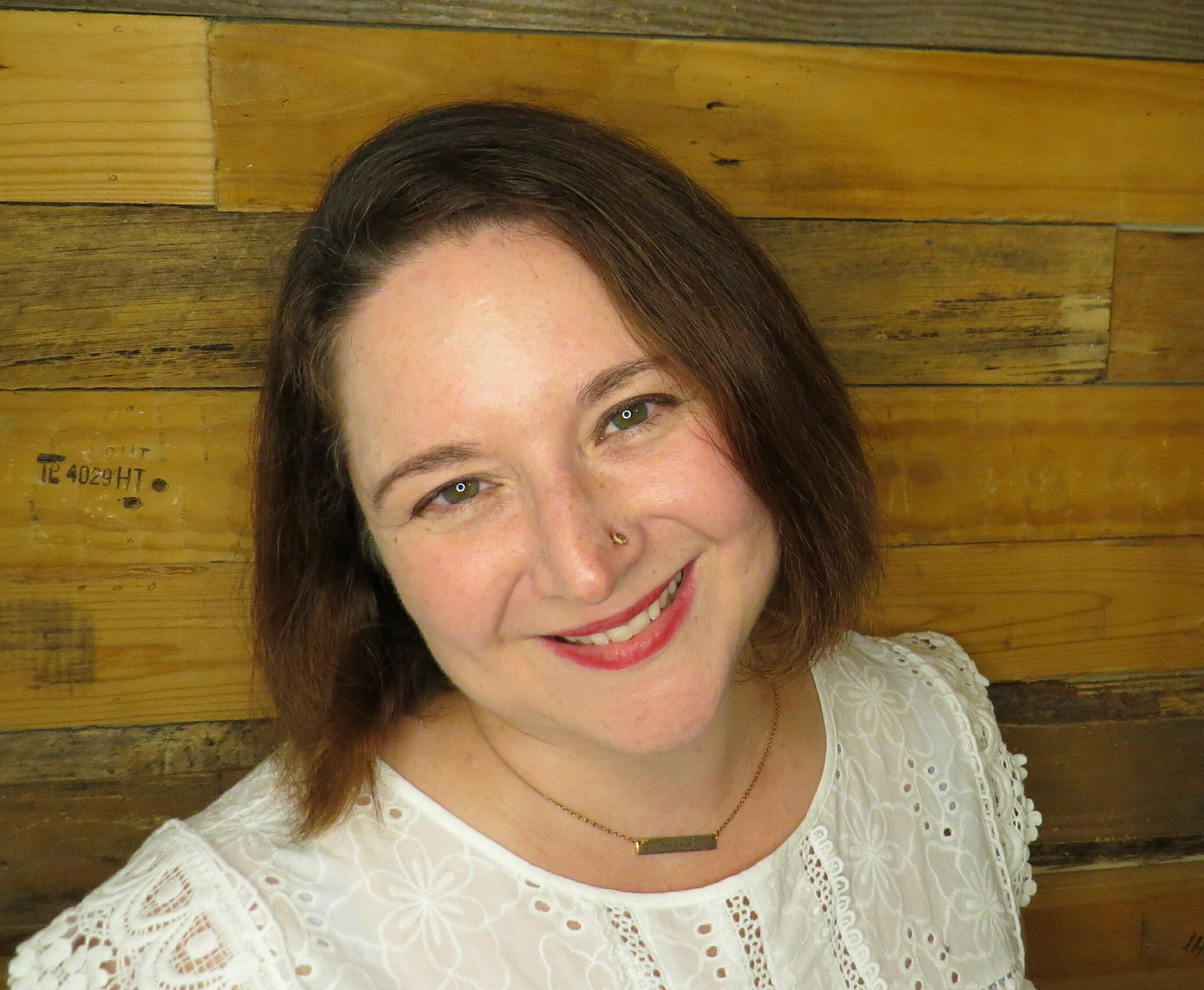
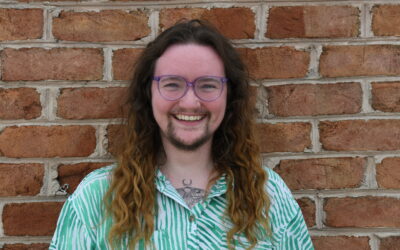
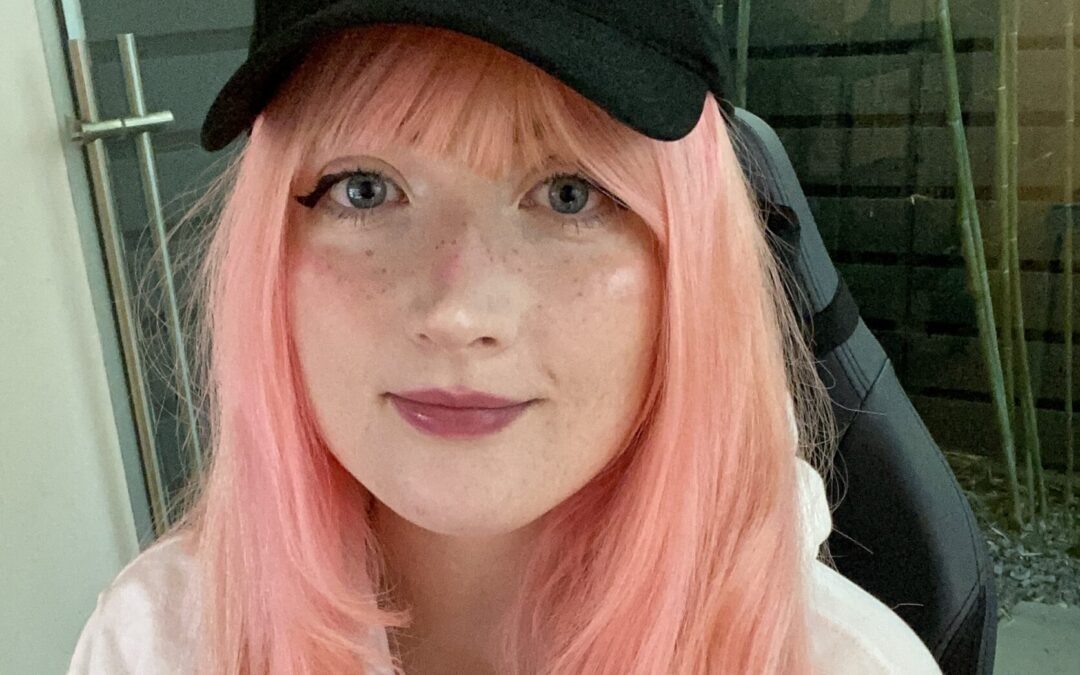
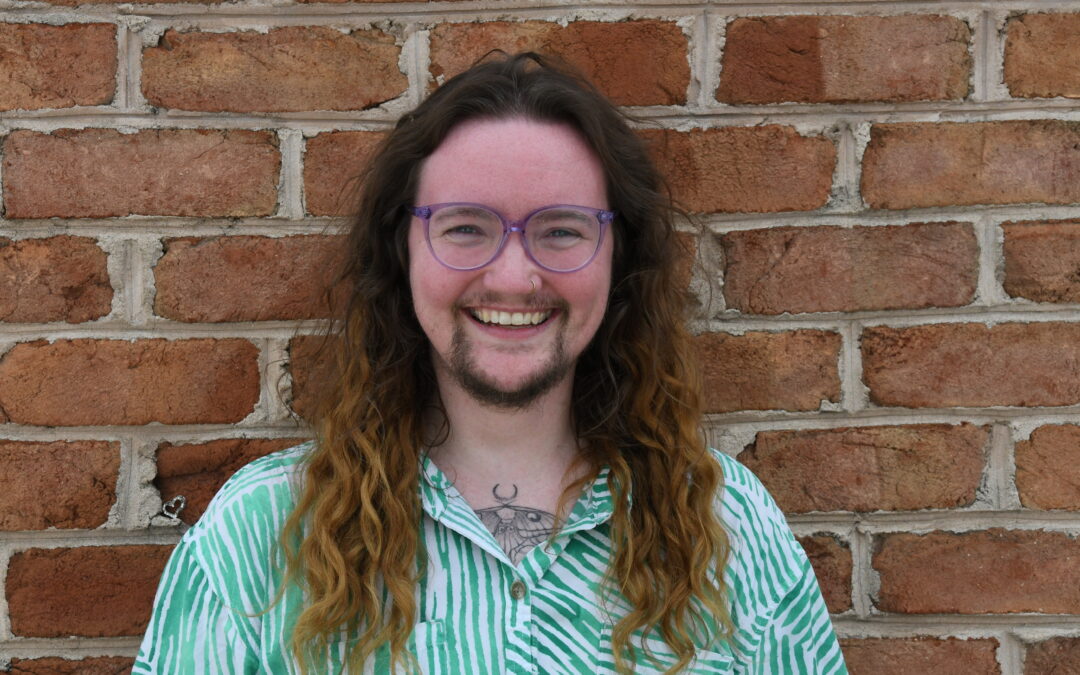
0 Comments